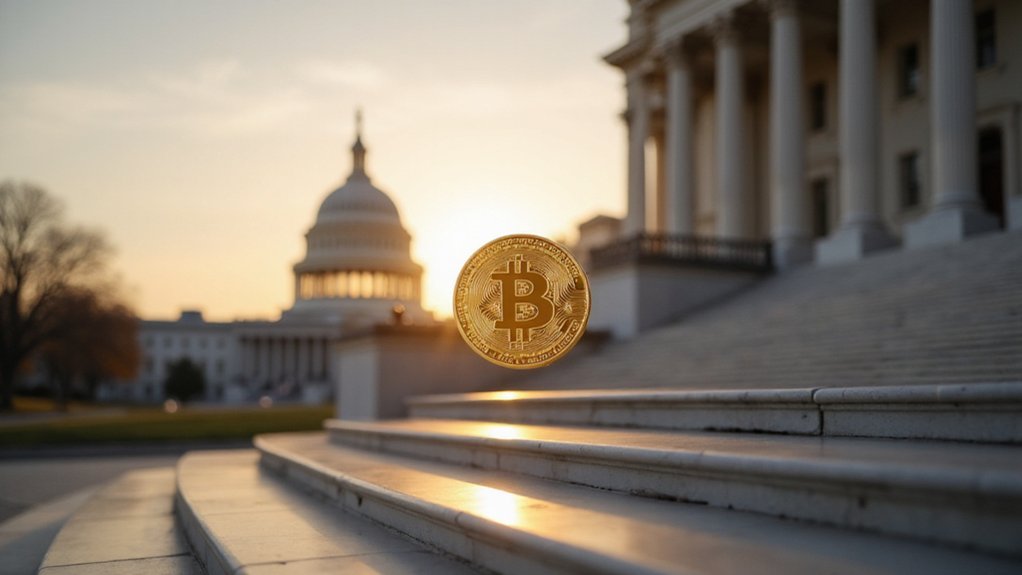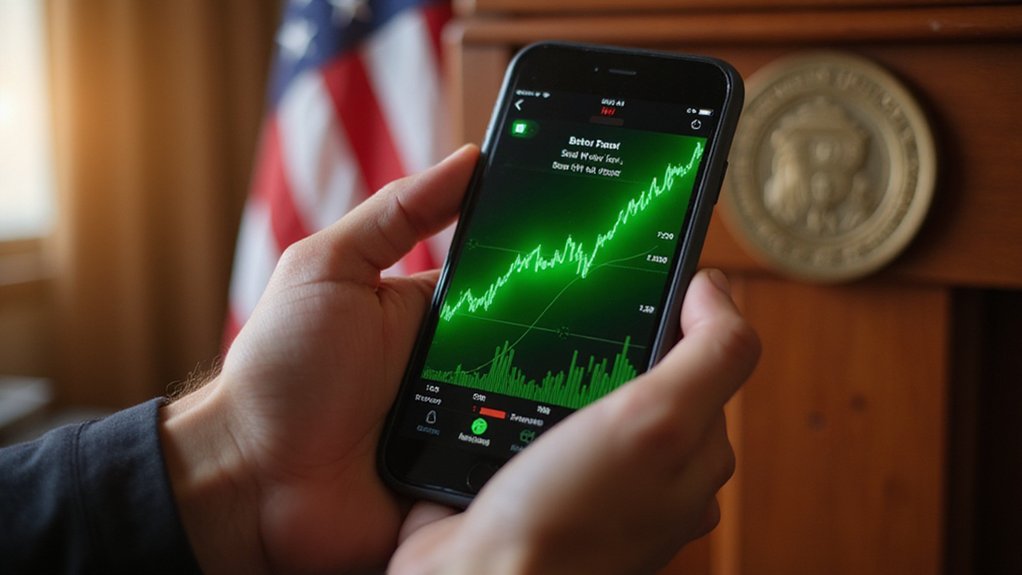The Senate has pushed forward the GENIUS Act of 2025—a bipartisan stablecoin regulation bill that manages to unite eighteen Democratic senators with their Republican colleagues in the peculiar task of legitimizing digital currencies pegged to the dollar, even as most Democrats remain skeptical of both the legislation and President Trump’s conspicuous crypto entanglements.
Introduced on February 4th by an unlikely quartet including Senators Hagerty, Scott, Gillibrand, and Lummis, the bill sailed through Senate reporting by March 18th before landing in the Banking Committee‘s capable hands.
The legislation tackles the Wild West of stablecoin issuance by establishing clear regulatory frameworks—a development that would have seemed fantastical just a few years ago when crypto existed primarily in libertarian fever dreams and late-night Reddit threads.
The bill’s provisions read like a financial regulatory greatest hits album: mandatory Bank Secrecy Act compliance, consumer protection guardrails, and the rather pointed prohibition against congressional members profiting from stablecoin ventures (apparently someone felt this needed explicit clarification).
Only permitted entities can issue these dollar-pegged digital tokens, effectively ending the era when anyone with coding skills and questionable judgment could launch their own “stable” currency.
The Senate’s 68-30 vote demonstrated substantial bipartisan support despite earlier concerns about potentially disruptive amendments.
Under the proposed framework, primary Federal regulators would include the Comptroller of the Currency, Federal Reserve Board, FDIC, and National Credit Union Administration.
What makes this legislation particularly fascinating is its timing, arriving after a campaign cycle where crypto interests deployed unprecedented political spending to secure favorable treatment.
The industry’s newfound respectability coincides suspiciously with Trump’s own crypto ventures, raising eyebrows among Democrats who question whether regulatory frameworks should emerge from personal financial interests rather than public policy considerations.
The economic implications extend beyond mere regulatory housekeeping.
By establishing clear compliance requirements and oversight mechanisms, the bill promises to enhance consumer confidence in stablecoin transactions while providing the industry with long-sought legitimacy.
This represents a watershed moment for digital currencies—the shift from speculative curiosity to regulated financial instrument.
Stablecoins were initially designed to provide an alternative to the high volatility of popular cryptocurrencies like Bitcoin and Ethereum.
Yet partisan tensions simmer beneath this bipartisan cooperation.
Democrats express concern about the bill’s effectiveness and Trump’s crypto connections, while Republicans celebrate the industry’s growing political influence.
The House now awaits its turn to potentially revise this groundbreaking legislation, which could fundamentally reshape how Americans interact with digital money.









